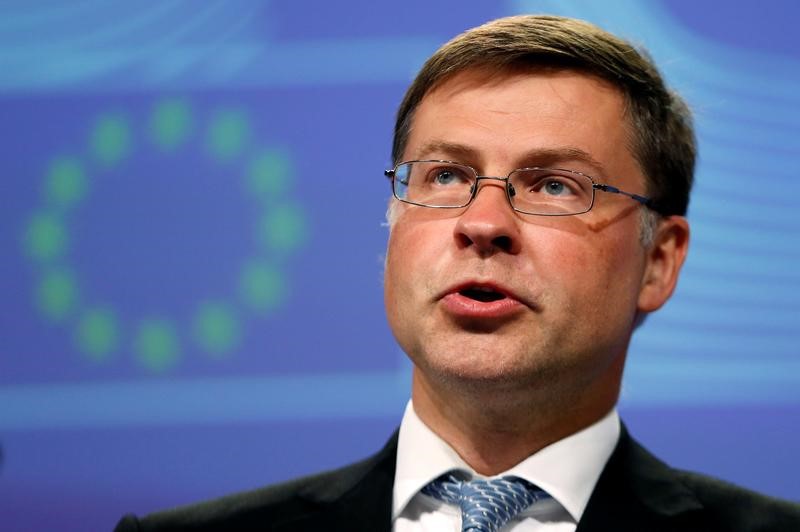LISBON (Reuters) - Portugal is set to exit the EU excessive deficit procedure if the European Commission confirms its latest forecasts for this year and next in a new assessment in the spring, a top EU official said on Friday.
Lisbon says it cut the budget deficit last year to 2.1 percent of GDP or less - the lowest level in the country's democratic history and below the 2.5 percent target set by Brussels - after 4.4 percent in 2015.
The gap is also below the 3 percent EU threshold for excessive deficits for the first time. The EU excessive deficit procedure implies strict deadlines and targets set by Brussels for countries to comply with to reduce the gap.
The commission's latest forecast pointed to a 2.3 percent deficit but "in any case, Portugal has outperformed on the target set by the (European) Council" in 2016, said European Commission Vice President Valdis Dombrovskis.
The Commission expects the deficit this year to be 2 percent and 2.2 percent in 2018.
"If those tendencies are confirmed when we use Eurostat data in April and the spring economic forecasts, one can say that Portugal is heading towards the end of its excessive deficit procedures," Dombrovskis told lawmakers on a visit to Lisbon.
While generally lauding the fiscal consolidation efforts and the country's economic recovery, he called for further reforms to address Portugal's limited growth and heavy debt burden.
"We expect ambitious national reforms to tackle economic imbalances in Portugal," he said, adding member states had to address their structural problems "while the European Central Bank is buying time" for such adjustments via its quantitative easing programme.
Dombrovskis said Portugal, which received an EU/IMF bailout in 2011-2014 due to a debt crisis, still needed to do more to reduce its public debt, which at just over 130 percent is the third-largest in Europe after Greece and Italy.

"Public debt has stabilised around 129-130 percent, which is still very high. It is very important that public debt be put on a clear downward trajectory. Markets need to see that the debt is being reduced," he said.